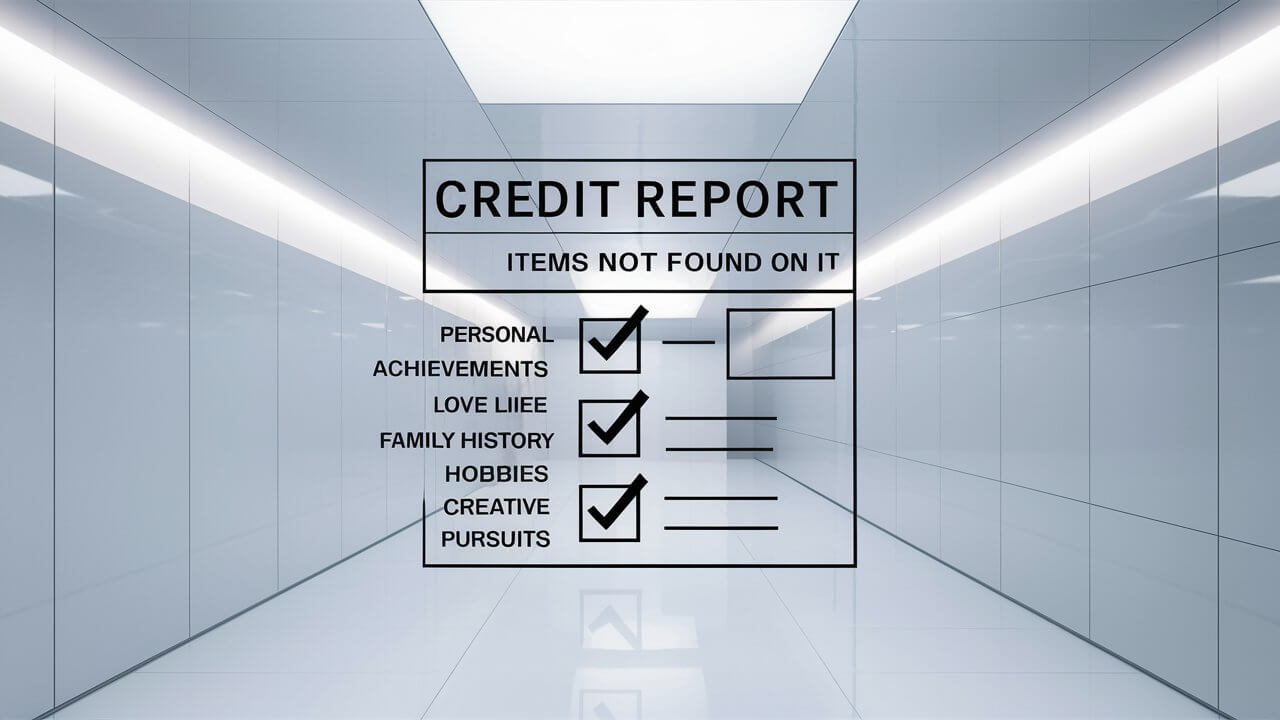
Comprising your payment history, credit activity record, credit score, queries, and other information, the credit report is a complete record of your credit actions. Your credit may be affected, however, by a lot of material missing from your credit report as well. Here is a summary of some important information absent from your credit report: The following is a summary of some important information lacking from your credit report:
1. It is Important to Determine Your Income, Employment, and Assets
When you approach your lender to seek credit, they might ask for your income, employment, and assets; however, none of these details is reported to the credit bureaus. The report is limited to your credit reputation as a paymaster of the debts. There is now no record of your salary, your employer, or the value of your home and balances in your bank accounts. This goes a long way in eradicating discrimination in lending decisions with financial institutions.
2. Outstanding Medical Balances That Are Still within 180 Days
This law also came into existence through the CARES Act, which means that medical collections, that are 180 days or younger, will not be reported to the credit bureaus. Even if the individual has not paid any of the medical bills for this duration, anything that was owed before this period will still reflect. The new rules implementing the credit reporting in 2023 will also call for the erasure of all paid or settled medical collections as well. This change will make a shift to help protect individuals from having their credit scores harmed by short-term medical bills.
3. Criminal Record
Criminal records such as arrest and conviction are not included in credit checks as these are not related to credit history. However, if you do not pay court fees or fines that may stem out of an arrest or conviction, they may be reported as a collection account that will also affect your credit score.
4. These have been in the market for more than 10 years and have declared themselves bankrupt.
The fact that you declared bankruptcy in the past might harm your credit score when you initially applied, but it is not a permanent thing. Details of bankruptcy are public records and are reported on your credit report for a period not exceeding 10 years as provided for in the Fair Credit Reporting Act. But the time begins to run from the actual file or discharge date with the defendant or on the date on which the appeal is filed.
5. Account Numbers
In the pursuit of ensuring that individuals do not lose their hard-earned money to fraudsters, credit reports do not display the full account number of credit cards, loans, or any other financial product. The remaining numbers would only be the last four to seven digits of the full number. That way, no one is going to get a chance to sneak a peek at your entire account numbers.
6. They were also divided into various groups based on race, gender, and marital status.
According to federal law, credit reporting agencies may not include information related to race, color, religion, national origin, sex, or marital status on your credit report. These are not correct and cannot be used for lending decisions.
7. Information About Your Spouse
Whether you are married or not, details of your spouse cannot be listed under your credit report except where you have accounts shared with them. It is also important to note here that only those accounts that are linked to your name are useful in creating a personal credit record. For joint accounts, you are equally surety for the debts and will have to repay the amount together with your spouse.
8. Inquiries from Employers
While searching for your credit report, a potential employer will make a soft inquiry on your credit history and it is not the same as having a lender making a hard inquiry. Soft inquiries do not affect your credit score and do not appear on your three personal credit reports. Employers are required to provide you with a copy of the employment report they ran on your credit, and this will help you see whether an employer checked your credit or not.
9. Information From Landlords
That means any court cases your landlord brings against you or any eviction notices you receive will not show up on your normal credit report. The unfortunate thing is that there are these agencies who are now monitoring this other data from sources other than the CRA and building their own tenant ‘blacklists’.
10. Utility Payment History
Though, what is explicitly reported to your file is the mortgage and credit card payments; nothing will show whether you made your routine utility bills like the ones at the local gas, electric, water, phone, or cable company on time or not. Still, this common alternative credit data does not receive its place in such reports.
In Summary
I hope that helps give you some sense of just how much more data is out there not in your credit report from Equifax, Experian, and TransUnion. Popular omissions such as your income, assets, medical collections, and basic identity data are designed to avoid discriminating against the protected classes. Some other left-out terms are just not within your borrowing and repayments realm of interest at all.
When considering the credit report, it is important to remember that, despite its lack of detail in some areas, it does paint an overall picture of how responsibly you manage different credit products based on their duration. This is true because your ability to pay your bills regularly and ensure that credit card balances do not exceed their recommended limits will see your credit score improve over time. Do not quire information about personal finance that is not supposed to be traced in a normal credit report.
Call now for expert credit repair services: (888) 803-7889
Read More:
How much credit card debt does the average American carry each year?
Can I buy a house with a 608-credit score?
Can I buy a house with a 602-credit score?
Can I buy a house with a 628-credit score?
Do banks offer credit monitoring services?




